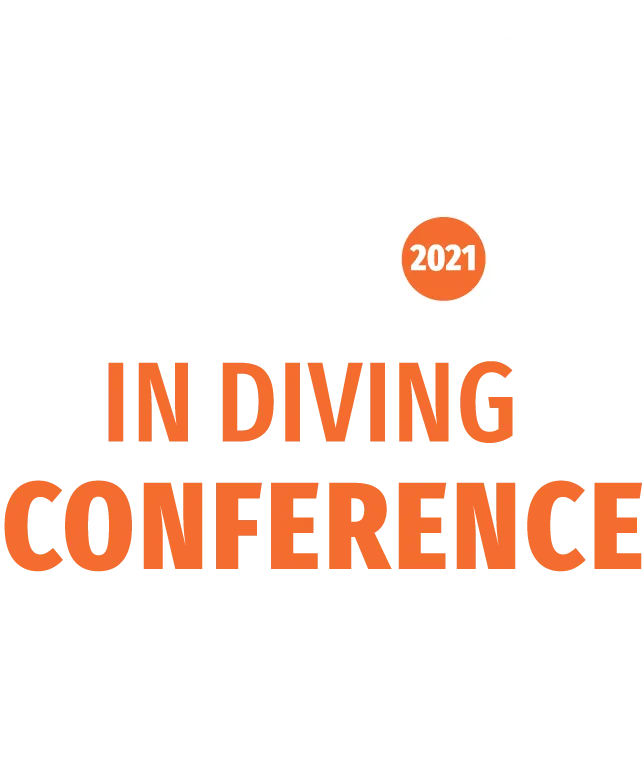





Timezone Converter
All times UK (British Summer Time). Here is a timezone converter link for you https://www.timeanddate.com/worldclock/converter.html
We know that the majority of people use mobile devices to view websites. We also know that PDFs aren't very mobile-friendly. So if you want to have a quick reference to the presentation programme, press on each photo, click 'Save' or 'Add to Photos', save it, and then you've got all four sets of presentations in one place.
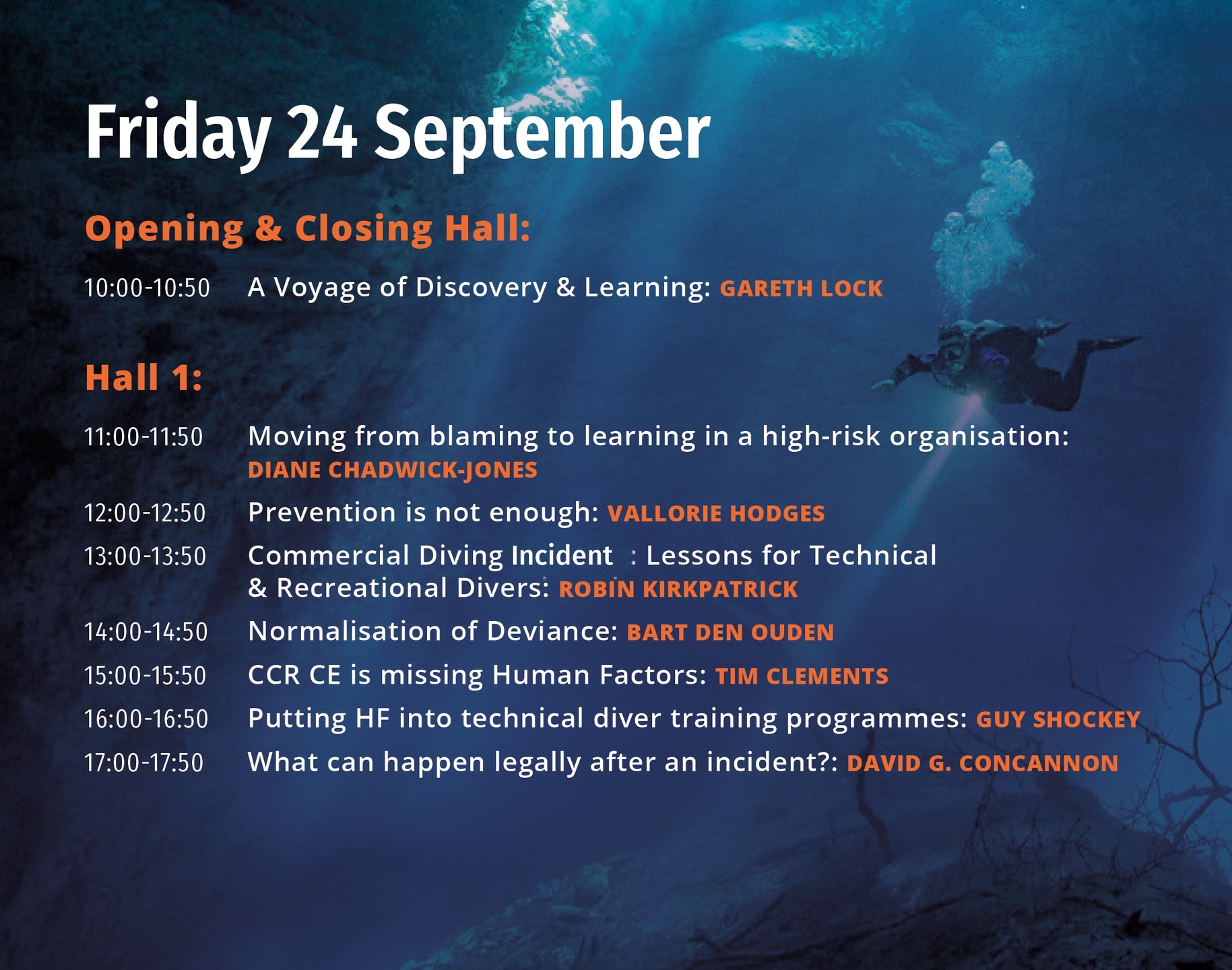
Friday 24 September
Hall 1:
10:00-10:50 A Voyage of Discovery & Learning: Gareth Lock
11:00-11:50 Moving from blaming to learning in a high-risk organisation: Diane Chadwick-Jones
12:00-12:50 Prevention is not enough: Vallorie Hodges
13:00-13:50 Commercial Diving Incident: Lessons for Technical & Recreational Divers: Robin Kirkpatrick
14:00-14:50 Normalisation of Deviance: Bart Den Ouden
15:00-15:50 CCR CE is missing Human Factors: Tim Clements
16:00-16:50 Putting HF into technical diver training programmes: Guy Shockey
17:00-17:50 What can happen legally after an incident?: David G. Concannon
Friday 24 September
Hall 2:
11:00-11:50 Changing attitudes to mistakes in your dive club: Matthijs Smith
12:00-12:50 Be a better Dive Master. Apply Human Factors: Mike Mason
13:00-13:50 Behind the scenes of an incident: Laura Marroni
14:00-14:50 Decision Making in Uncertainty: From Healthcare to Diving: Dr Tristan Cope
15:00-15:50 Checklists Save Lives: Dr Michael Rothschild
16:00-16:50 DAN incident reporting – work in progress: Dr Frauke Tillmans
17:00-17:50 From the Ground Up: The Rebuilding of a PSD Team After an Accident: Tim Andro
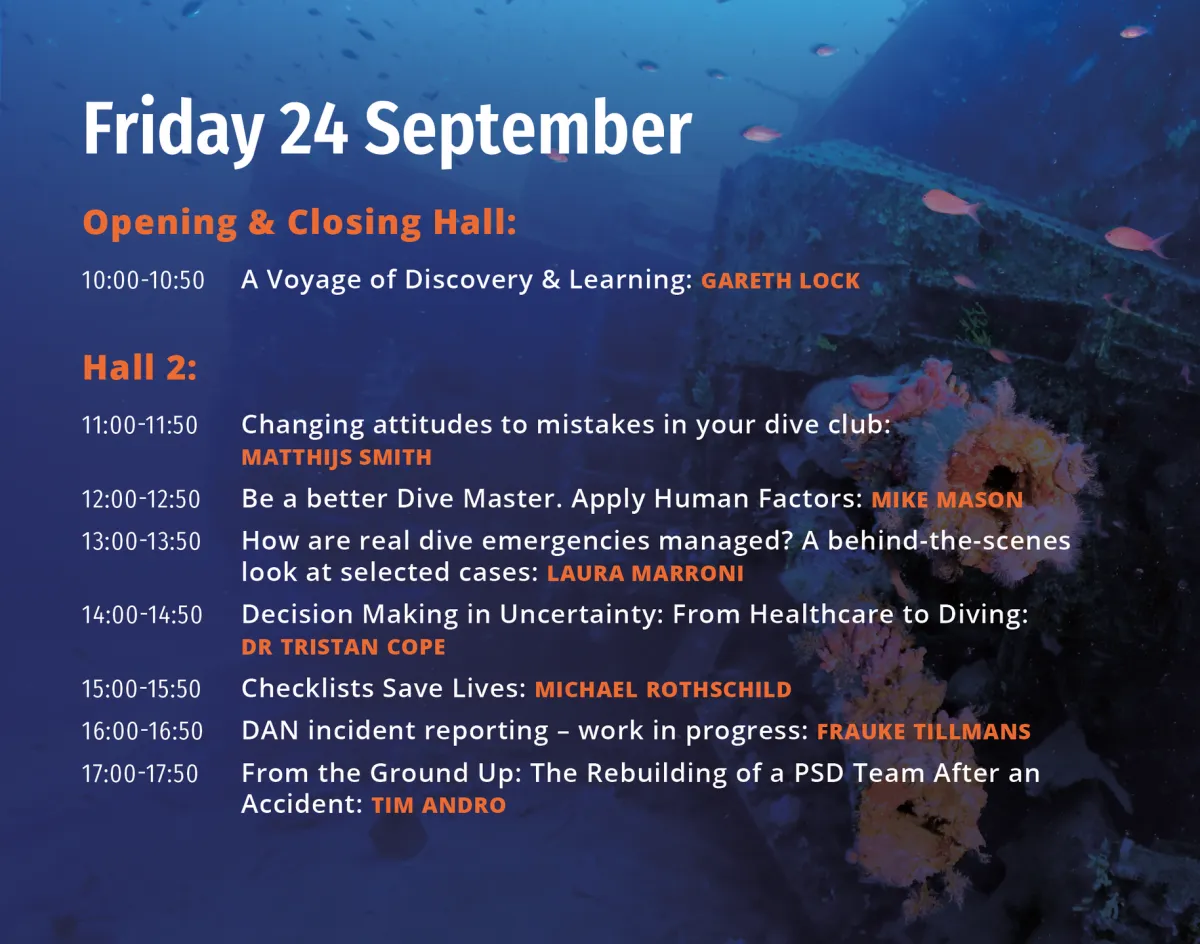
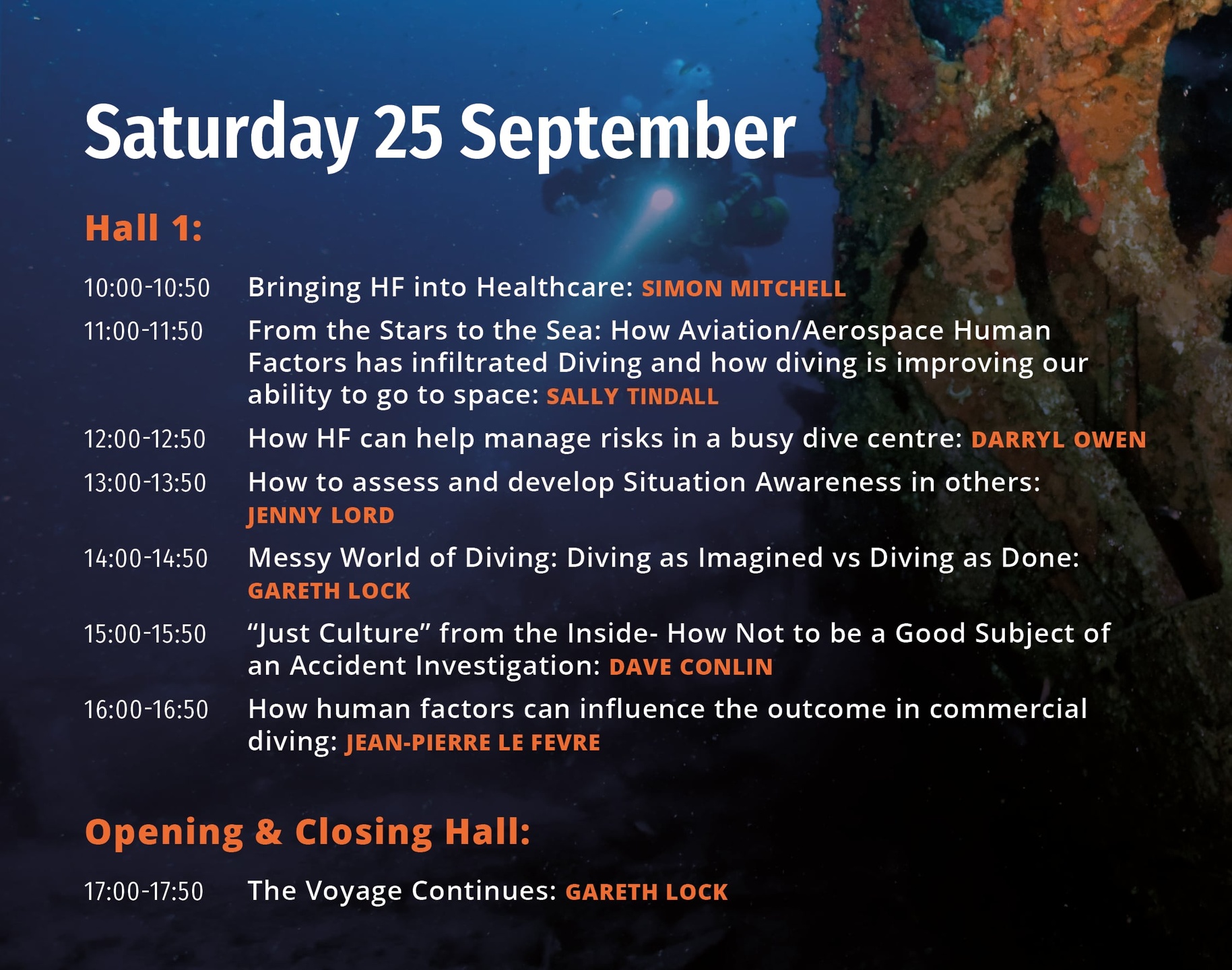
Saturday 25 September
Hall 1:
10:00-10:50 Bringing HF into Healthcare: Simon Mitchell
11:00-11:50 From the Stars to the Sea: How Aviation/Aerospace Human Factors has infiltrated Diving and how diving is improving our ability to go to space: Sally Tindall
12:00-12:50 How HF can help manage risks in a busy dive centre: Darryl Owen
13:00-13:50 How to assess and develop Situation Awareness in others: Jenny Lord
14:00-14:50 The Messy World of Diving: Diving as Imagined vs Diving as Done: Gareth Lock
15:00-15:50 "Just Culture" from the Inside- How a Bureaucracy Responded to a Dive Accident: Dave Conlin
16:00-16:50. How human factors can influence the outcome in commercial diving: JP
17:00-17:50 The Voyage continues: Gareth Lock
Saturday 25 September
Hall 2:
10:00-10:50 Facing diver panic to open opportunities for wider prevention: Laura Walton
11:00-11:50 Message Not Delivered – when communication fails us: Beatrice Rivoira
12:00-12:50 The Application of Human Factors as an Average Diver: Chris Tibble
13:00-13:50. The relationship between national culture and safety culture: Implications for diving safety and organizational culture: Andrzej Gornicki
14:00-14:50 Bringing CRM into Military Diving: Cdr Geir Gunderson
15:00-15:50 Human Factors for Novice Divers: Why and How?: Helene Pellerin
16:00-16:50 Creating positive change through storytelling: Ashley Bugge
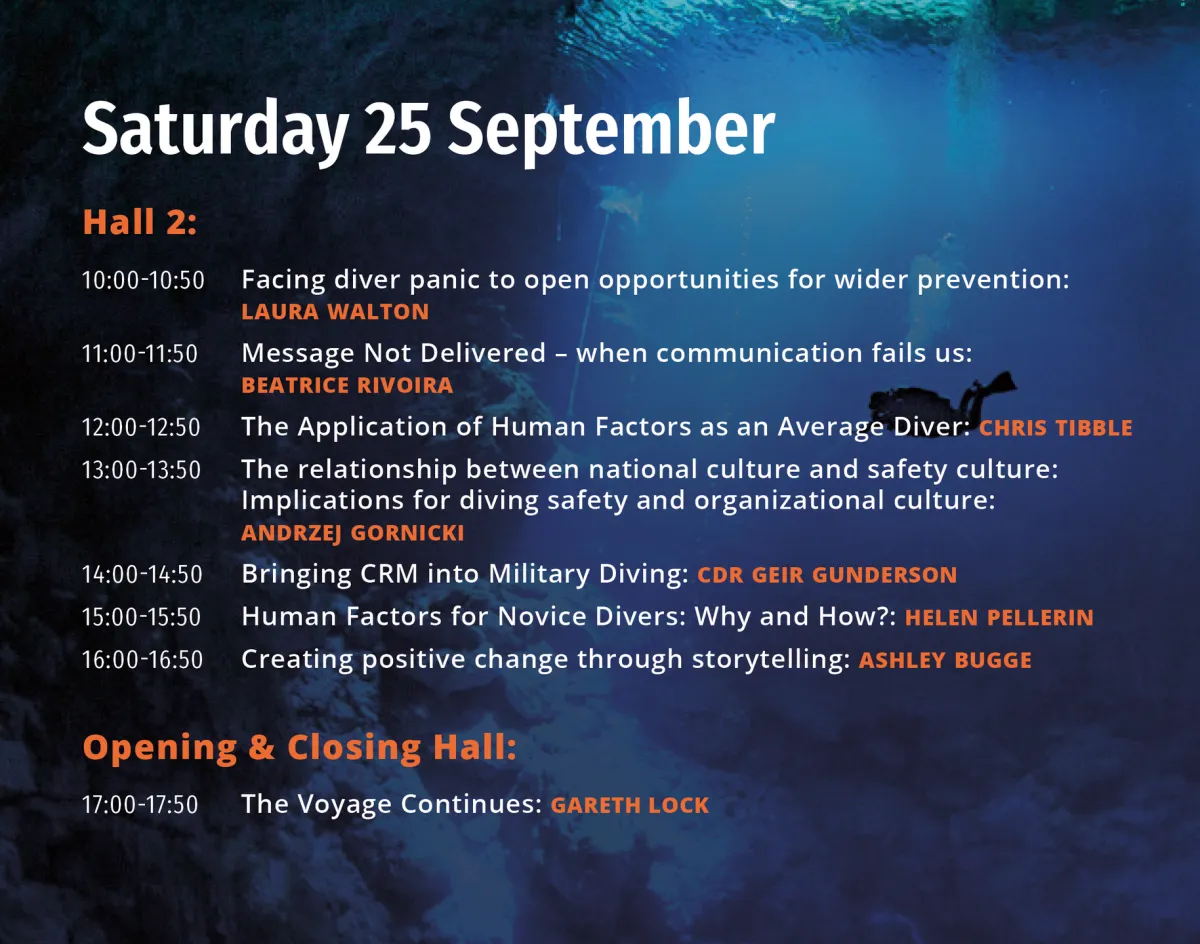
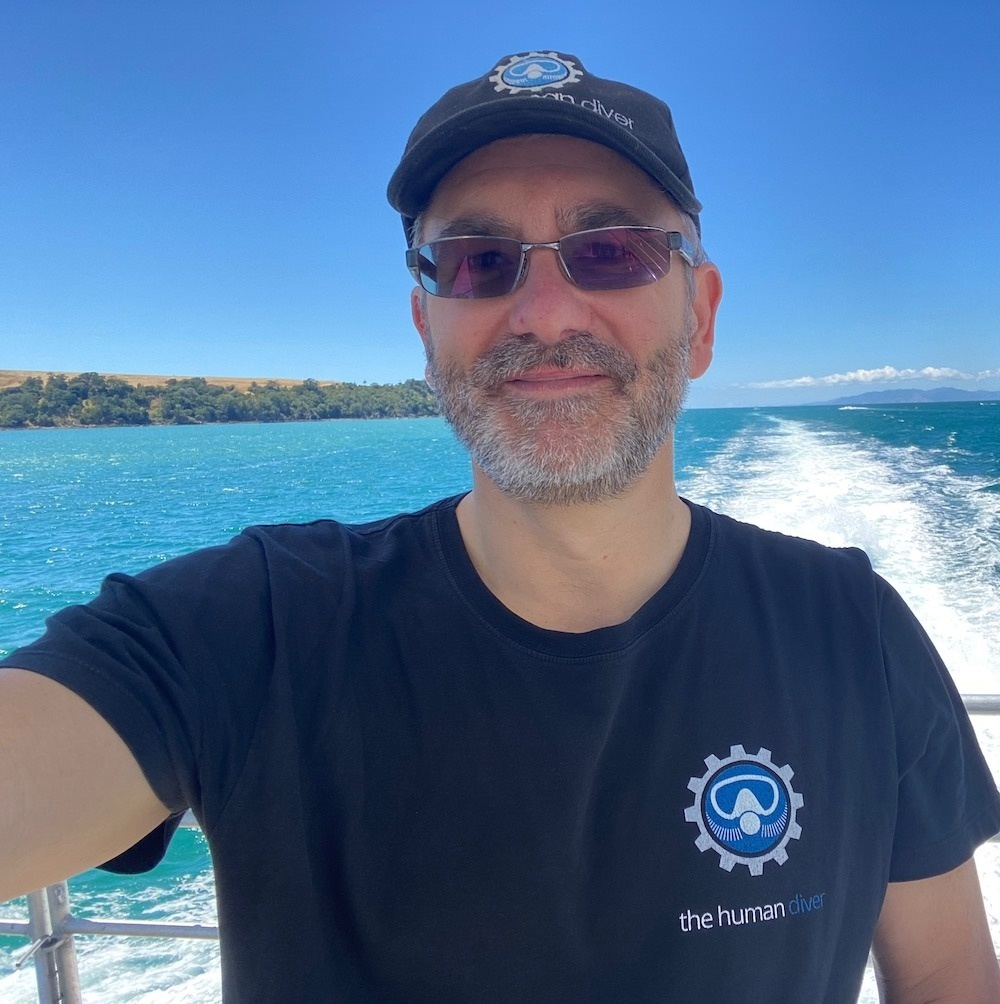
A Voyage of Discovery & Change
Gareth Lock......10:00-10:50 Room 1
Aviation was the first industry to truly embrace Human Factors, Non-Technical Skills and a Just Culture to improve operational, flight and passenger safety. But they didn't have an easy voyage. What can diving learn from this voyage of discovery and change?
A Voyage of Discovery and Change
In 1936, a critical event happened that changed aviation safety and saved Boeing from bankruptcy. It was the development of a checklist to help pilots remember critical steps. In 1947, researchers Fitts and Jones published a paper that said “Practically all pilots of present-day AAF aircraft, regardless of experience or skill, report that they sometimes make errors in using cockpit controls.". The point they were making was that human error was everywhere and they needed to design 'systems' to take human variability into account.
Over the coming decades, change happened but it wasn't easy. People don't like change, but when those in charge realised it could save them money, and increase their positive reputation, they started to build human factors and non-technical skills into their aircrew, engineering and ATC training programmes.
Over time, these programmes have been copied and modified to allow them to be used in healthcare, oil & gas, nuclear power, construction, veterinary practices, all with positive outcomes.
This introductory presentation will set the scene for the conference, highlighting the voyage divers have been on regarding HF in diving and what to expect over the two days of the conference.

Moving from blaming to learning in a high-risk organisation
Diane Chadwick-Jones......11:00-11:50 Hall 1
Wondering if there are any examples of the implementation of James Reason’s Just Culture model that have created positive change and a move away from blame towards learning? Search no more! This presentation explains the successful re-design done by BP since 2012 that has been published in a peer-reviewed journal.
Moving from blaming to learning in a high-risk organisation
The Just Culture process, originally introduced by James Reason in 1997, remains a popular framework helping managers to decide how to respond in cases of human error or non-conformance which contributed to an incident. However, over the years, the available evidence indicated that the original design contributed to the misapplication of the process and in some cases led to outcomes not aligned with the intent. Therefore in 2012, BP started a re-design that improved Reason's original framework towards one informed by recent studies in cognitive and social psychology, organisational justice, systems thinking and incident causation.
Bio:
Diane is the former Director, Human Performance for BP, where she delivered cultural change and safety improvement including operationalizing a “systems thinking” approach by improving the way work is set up to reduce the possibility of mistakes and make work more effective. Diane now focuses on education and advocacy.
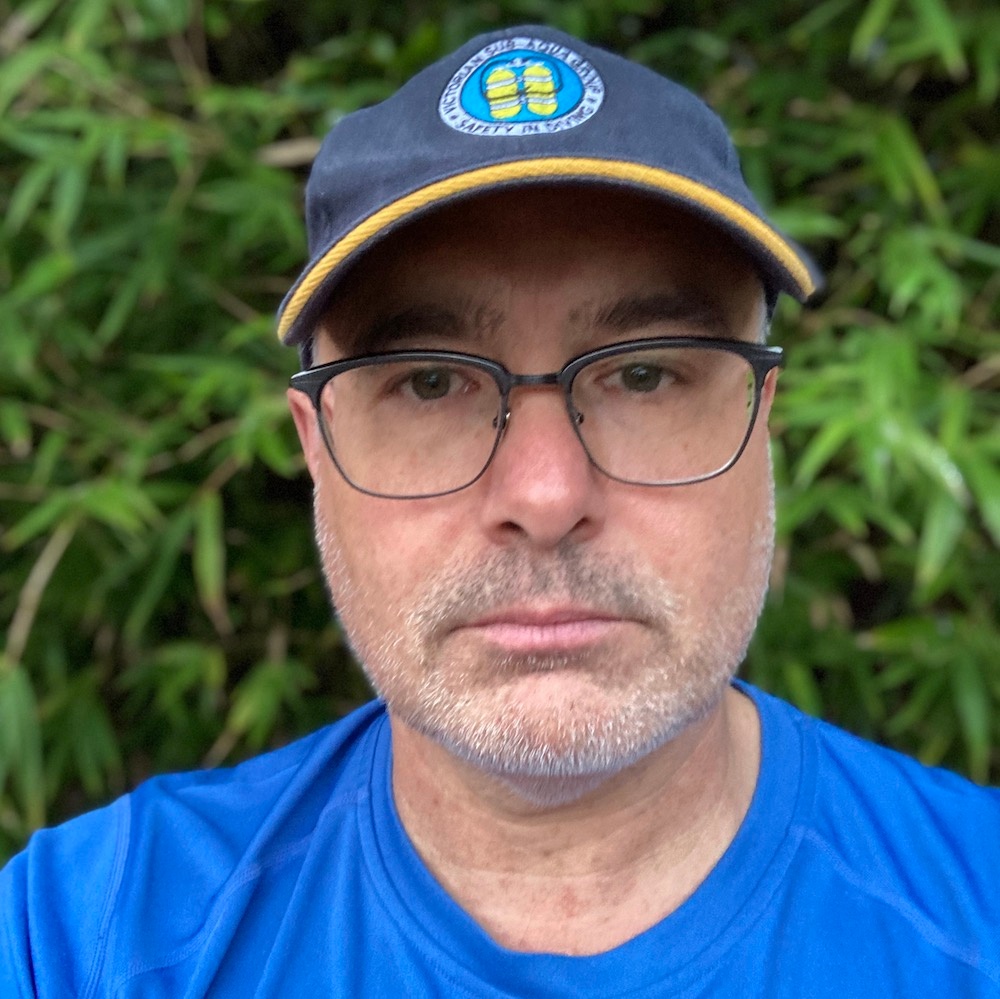
Changing attitudes to mistakes in your dive club
Matthijs Smith......11:00-11:50 Hall 2
How do you change how a recreational dive club thinks and talks about things when they go wrong and how do you use these experiences to improve the learning and safety of its members? Matthijs' talk will go through his dive club has approached this, some of the wins we have had, and also some of the challenges involved in introducing the training in Human Factors and creating a Just Culture into a social dive club
Changing attitudes to mistakes in your dive club
Change can be introduced into an organisation using a combination of enforcing rules/guidelines and embedding them in the culture. In a social, dive club, there is much less scope to enforce change, even just to get the ball rolling, so trying to change the culture is the main lever that has to be used. With a diverse group of people who are primarily out to have some fun and only get together irregularly, this can present some challenges. However, the rewards of seeing behaviours change and club members doing the right thing because they believe in it and because they want to, makes the effort worthwhile. This talk will go through how our dive club has approached this, some of the wins we have had, and also some of the challenges in introducing some of the training in Human Factors and creating a Just Culture in a social dive club.
Bio:
Matthijs is an active recreational diver based in Melbourne and is the current President of the Victorian Sub-Aqua Group, one of the longest-running dive clubs in the world.

Prevention is not enough
Vallorie Hodges......12:00-12:50 Hall 1
Regardless of how much effort we make to prevent diving incidents, they will still occur, so we must also be able to respond when things go badly. This session uses a simple visual model to show how we can balance prevention, innovation in the moment, and response to an event, and highlights how learning creates a feedback loop to dynamically improve the entire system.
Prevention is Not Enough
A strong prevention bias in safety thinking doesn’t offer a robust understanding of the complexity of high consequence events. Despite the best risk assessments, procedures, and people, we simply cannot prevent all incidents. We must instead balance prevention efforts with capacity to respond and recover when things go badly. But how do we apply this in our diving?
This session offers a simple visual model (along with a backstory) to stimulate discussion and promote learning, shared understanding and a language of safety differently, in the context of the buddy system in Scientific Diving. The model is an adaptation of the bowtie model – but with a twist.
On one side of the traditional bowtie model, prevention efforts deter threats, while on the other side capacity to respond to events reduces impact. The centre represents operational activity and an event moment. This is also the moment when people recognize anomaly and make sense of the information, learn in the moment, and innovate a change to the system.
In our adaptation, the bowtie is depicted inside a sphere of influence representing the margin of manoeuvre. Positive influences create an outward force to maintain a buoyant sphere. Negative influences put pressure on the system, reduce its size, robustness and even collapse it. An unbalanced bowtie can also collapse the system.
Then we shift the model from bowtie to propeller, making it dynamic, and demonstrating how learning creates a feedback loop to improve the entire system- including preventive, operational and response/recovery components.
Bio:
Vallorie Hodges is the University Diving Officer and Safety & Wellbeing Advisor at the University of Tasmania with a passion for human factors and safety differently.
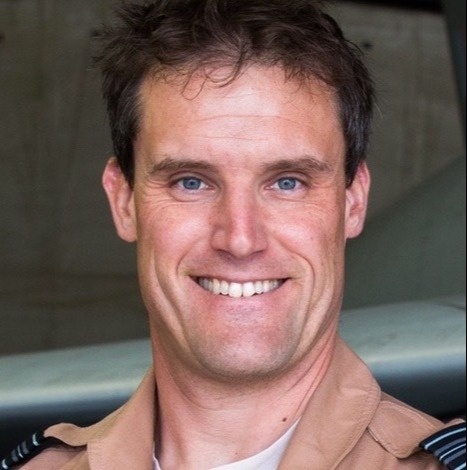
Be a better Dive Master. Apply Human Factors.
Mike Mason......12:00-12:50 Hall 2
Everyone loves a story. We'll look at some real-life diving incidents involving Dive Masters and draw Human Factors lessons from them. Mike will also provide some specific advice on how Dive Masters can apply Human Factors to make their diving and that of their customers safer, more productive and more enjoyable.
Be a better Dive Master. Apply Human Factors.
Dive Masters deal with different divers all the time. These divers come from different cultural backgrounds, different training organisations and have different levels of ability.
A qualified Dive Master will routinely take a diverse group of people diving in good conditions at familiar dive sites without suffering serious mishaps. However, there are often little things that happen that weren't part of the plan that gets ignored or forgotten and are rarely discussed after the dive.
When incidents do occur, it is often as a result of lots of these little mishaps coming together at the same time. By discussing real-life diving incidents,
Mike will look at several different examples of Human Factors where Dive Masters were involved and what can be learned to try and avoid similar incidents happening in the future. The main aim is to provide some specific advice on how Dive Masters can apply Human Factors to make their diving and that of their fellow divers safer, more productive and more enjoyable.
Bio:
Mike is an experienced military pilot and flying instructor in his day job and works as a Dive Master at weekends. He is also training to become an instructor for The Human Diver and is always striving to improve diving by applying Human Factors.
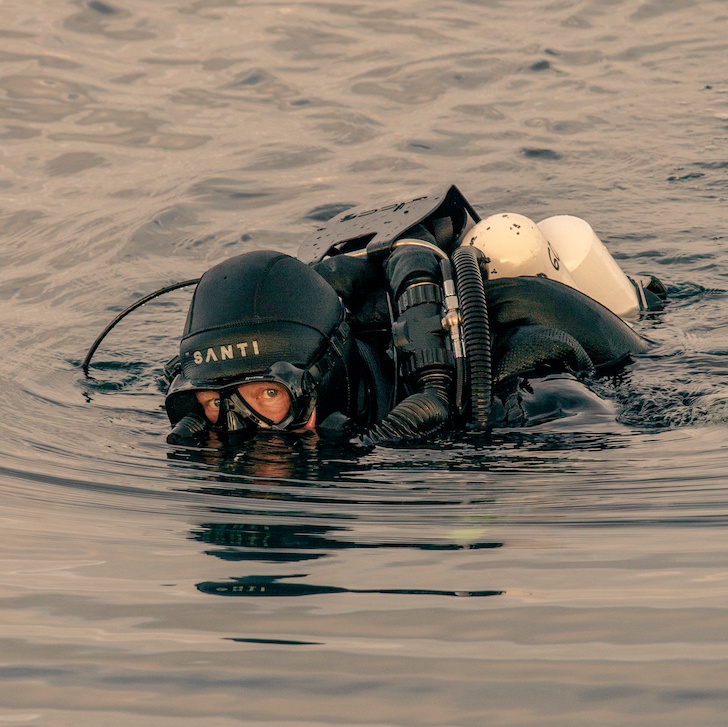
Commercial Diving Accident: Lessons for Technical & Recreational Divers
Robin Kirkpatrick......13:00-13:50 Hall 1
A number of Human and Organisational Performance factors resulted in a near fatal DCS incident during a surface supplied air range commercial dive. This presentation provides an invaluable insight drawing clear parallels with recreational and technical diving.
Commercial Diving Accident: Lessons for Technical & Recreational Divers
In December 2018 a young and fit commercial diver suffered near-fatal injuries arising from a poorly managed series of dives using ‘no stop/no decompression’ tables.
“Deep, dark and dangerous” and “How can this be of relevance to me?” I’m sure you are thinking? This was a surface supplied commercial dive after all.
This is of direct relevance to you because it was the result of a series of 5 ‘no stop’ dives conducted over a number of days and all to circa 20 metres water depth and all conducted using air as the breathing gas. Just like your own holiday and expedition dives I’m sure. OK, he was working hard but then again, we all encounter hard work on dives too, often due to current and having to fin hard. His daily dives were run according to USN 7 tables for repetitive diving.
The dives did, however, push the defined limits and during his last dive, he experienced what can only be described as a more-than-usual rapid ascent to the surface. The rapid onset of what was subsequently identified as a Type II DCI, vestibular bend was then compounded by what can only be described as poor emergency management. It took 6 hours to get him into a chamber for recompression and this involved a helicopter flight to a neighbouring island. Incredibly there was a chamber 4 minutes away from the site of the incident but the supervisory team on-site decided not to use it.
There is more, much more and this presentation provides many learning points for us all, no matter what type of diving we do. Human physiology is common to us all, as are the laws of physics. Lewis wants to share what happened to him so that others may learn and avoid what happened to him. He wants us to benefit from his near-death and certainly life-changing diving incident.
Bio:
I’ve been a diver since the 1970’s and freely admit to a particular passion for wrecks but actually my real passion is diving, diving of any form.
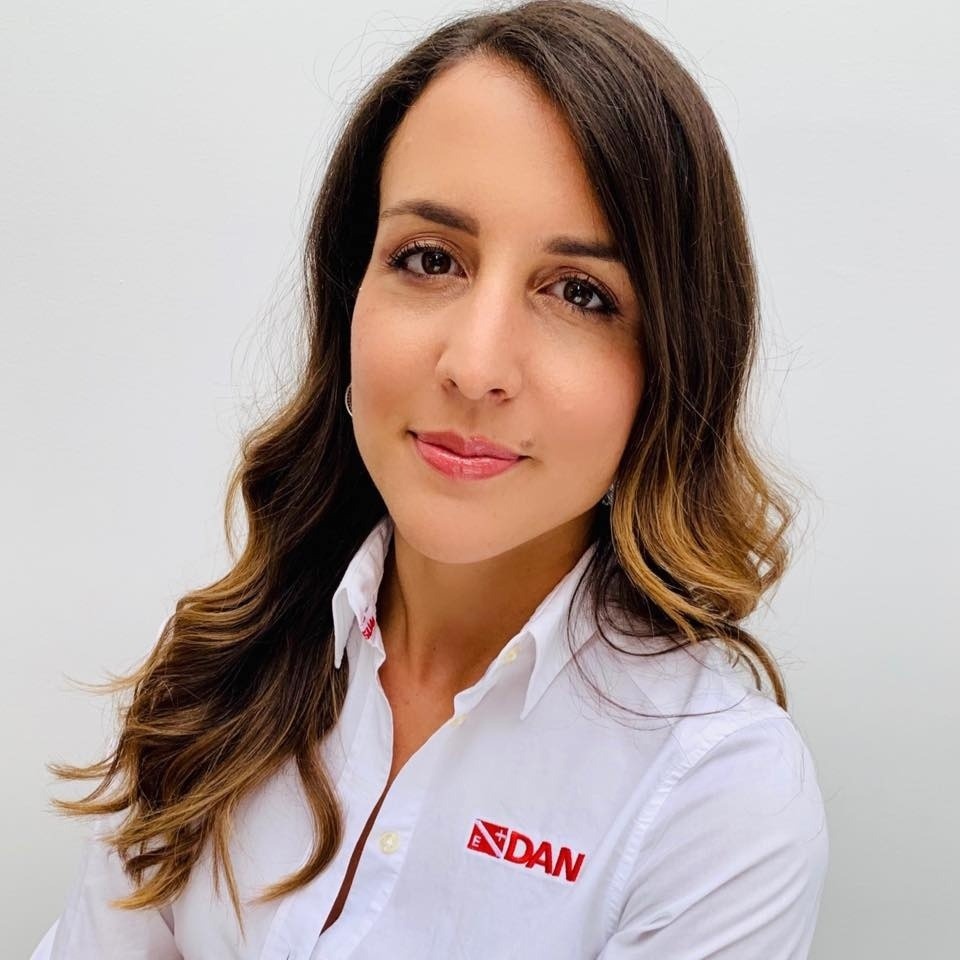
How are real dive emergencies managed? A behind-the-scenes look at selected cases.
Laura Maroni......13:00-13:50 Hall 2
The presentation aims at shedding more light on what really happens when a dive emergency occurs, from initial response to final analysis. Some real case scenarios will be provided, to add a more practical, concrete perspective on the subject.
Behind the Scenes of an Incident
When a dive incident happens, focus is often put on external factors and in serious accidents often scarce and misleading news is published by specialised as well as general media.
With an average of 5500 emergency calls received every year worldwide - ranging from trivial to deadly - the DAN team has been collecting a wealth of data in its 40-year-long history.
The presentation aims at shedding more light on what really happens when the alarm centre is notified of an emergency, the procedures followed to promptly respond, the service providers involved, and how all this is coordinated to improve the diver’s conditions and avoid further damage.
Some real case scenarios will be provided, to add a more practical, concrete perspective on the subject.
The data collected and the experience gained also allow us to analyse what are the most recurring incidents and why they happen, providing interesting considerations about human factors as well.
Short Bio:
Laura is the Executive Vice President of DAN (Divers Alert Network) Europe, and a scuba diving instructor and a passionate technical and cave diver. Her mission is to help promote a culture of safety within the diving industry, continuing what the organisation that now she leads has been doing for over 40 years now.
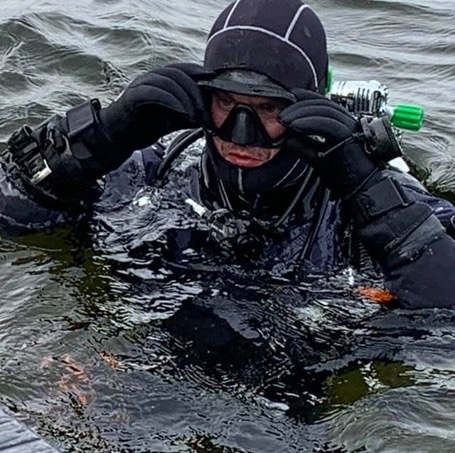
Normalisation of Deviance
Bart den Ouden......14:00-14:50 Hall 1
Drift happens to all of us and within every organisation, no exceptions. I will look at why this happens, provide examples and will discuss how to prevent it.
Normalisation of Deviance
If only we could prevent every bad thing by capturing it in a rule. But that’s not possible. Yet, we try to do just that. Humans are practical creatures and we will always look for the most efficient way to get the desired results. Even if this means not following the rules. “It’s the result that matters!”, right?
Bio:
Bart den Ouden is a TDI Advanced Mixed Gas (OC & CC) Instructor Trainer, PADI Course Director and Instructor Trainer for Disabled Divers International (DDI), DAN Europe & Emergency First Response Corp. (EFR). He is also a security professional, an examiner for the Dutch Security Exam Board and an instructor for The Human Diver and he lives in Rotterdam, Netherlands.

Decision-making in Uncertainty: From Healthcare to Diving
Dr Tristan Cope......14:00-14:50 Hall 2
The psychology and practicality of decision making in time-critical situations with limited information and how it can be applied to diving.
Decision-making in Uncertainty: From Healthcare to Diving
Human beings have evolved to be able to make rapid decisions with incomplete information using heuristics which rely on experiential learned rules and cognitive biases. With examples from healthcare and other sectors we will explore the benefits and pitfalls of heuristic decision making and strategies for improving decision making in diving.
Bio:
Tristan Cope is Executive Medical Director and a consultant in Critical Care Medicine at Liverpool University Hospitals. He is also Lead Clinician at the North West Recompression Unit on the Wirral.
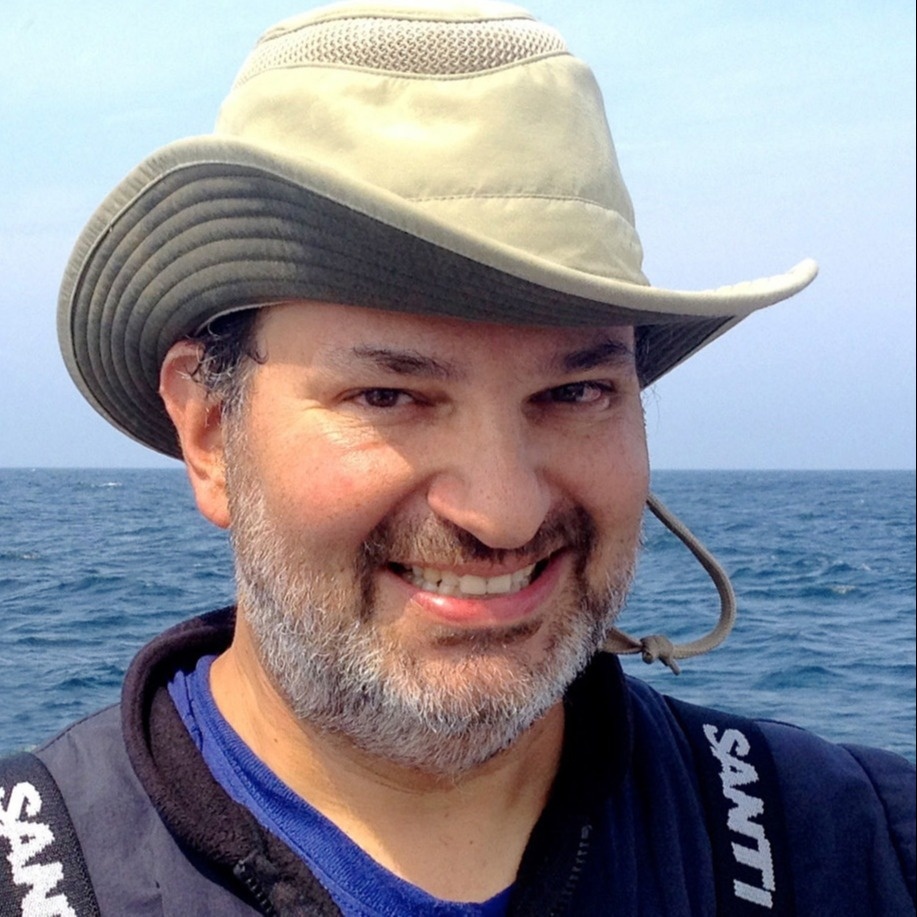
Checklists Save Lives
Dr Mike Rothschild......15:00-15:50 Hall 1
In a number of fields involving the chance for operational failure resulting in injury or death, written checklists have saved lives. This presentation will discuss their use in areas such as scuba diving, surgery and aviation.
Checklists Save Lives
As human activities become increasingly complex, operational failure due to omitted critical steps becomes more and more likely. In many fields, this can result in serious injury or death. Relying on expertise or experience alone introduces a failure mode related to the wide range of conditions that can negatively impact the operation of the human brain. Anger, sickness, distraction, and other such states can make mnemonic devices and well rehearsed routines fail, with catastrophic results. A physical, printed checklist, when combined with appropriate procedures for following such a list acts as a line of defense against such failure. These lists have been successfully implemented in a number of high-stakes fields, such as diving, surgery and aviation. This talk will review their use and make recommendations for implementation by scuba divers to enhance safety.
Bio:
I am a pediatric otolaryngologist in New York City and a technical rebreather diver. I have served as the president and dive chair of the New York City Sea Gypsies, and I am a medical moderator on scubaboard.com. I am also an avid underwater photographer and videographer, and currently the co-director of the New York Underwater Photographic Society.
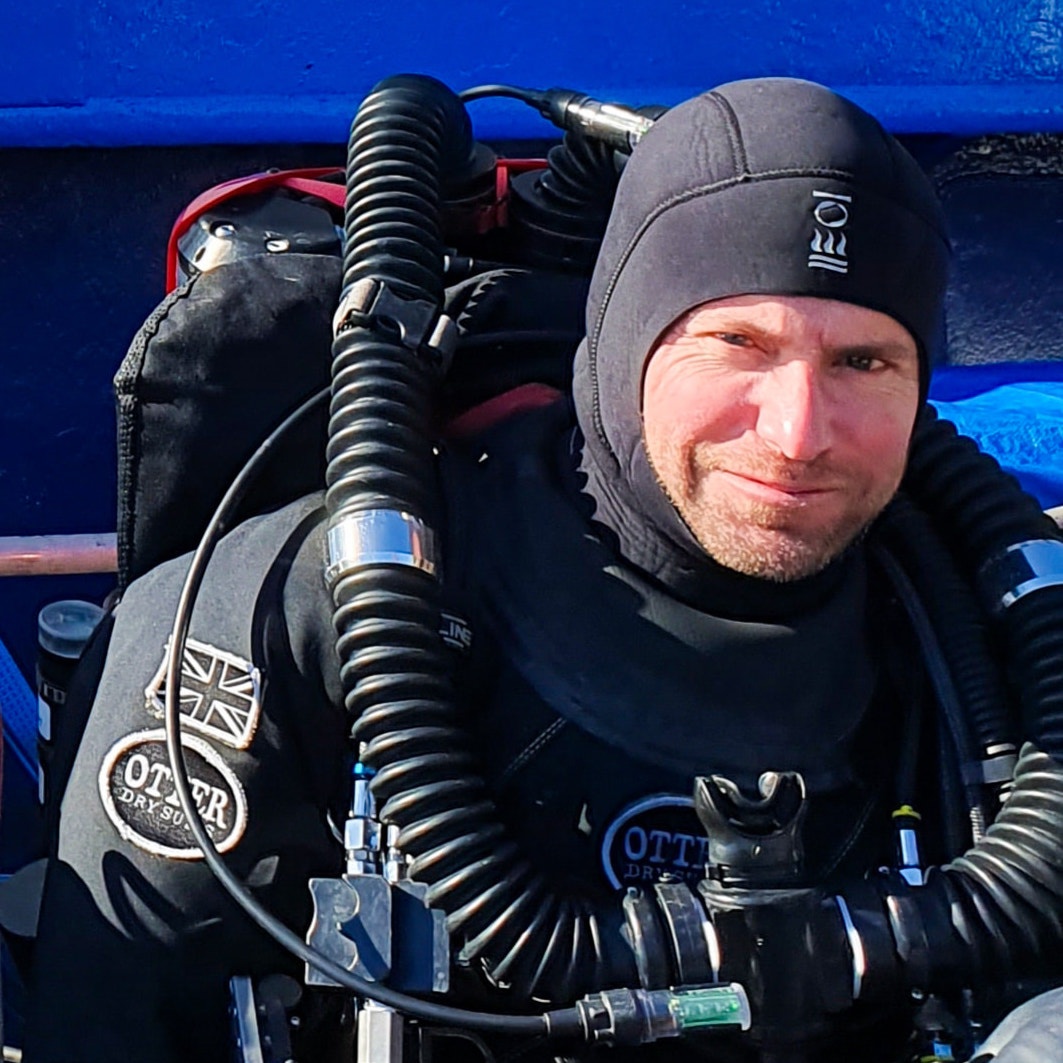
CCR CE is missing the HF Element
Tim Clements......15:00-15:50 Hall 2
The benchmark safety test for CCR is CE testing to EN14143:2013. This talk explores how far human factors are considered, both implicitly and explicitly in this standard, to improve diver safety.
CCR CE is missing the HF Element
We now have multiple decades of CCR operation by sport divers. Over that time, diving knowledge has improved, manufacturing has improved, training has improved, data recording has improved and the factors contributing to incidents has shifted accordingly. This shift has reduced some factors, leaving human factors in a more prominent role. This presentation explores how human factors are addressed in safety testing and outlines some scenarios where this approach could be updated.
Bio:
Tim started diving in 1990 while studying Marine Biology and Oceanography, becoming a BSAC Advanced Diver, followed by MSc and HSE Part IV qualifications. He is now heavily involved in the RedBare CCR development as well as managing the Vobster Quay dive site.
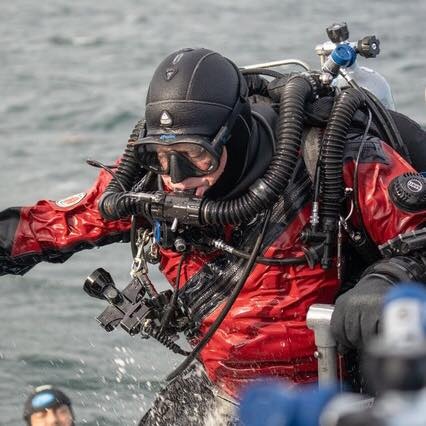
Incorporating HF into Technical Diver Training Programmes
Guy Shockey......16:00-16:50 Hall 1
It is possible to work human factors training into a technical diving class in such a fashion as it is continually reinforced and referenced in nearly all aspects of training.
Incorporating HF into Technical Diver Training Programmes
Most technical dive training focuses on equipment management and technical skills such as buoyancy control. Little to no time is given over to non-technical skills such as decision making and communication. Yet, these factors can play a critical role in how a dive team performs under pressure. It is possible to thread an awareness of human factors through technical training from day one. I have been doing this for several years and I have developed and will share some useful strategies that I have found successful.
Bio:
Guy Shockey is a full time Global Underwater Explorers Instructor Evaluator who teaches all of GUE’s technical diving courses including both OC and CCR. He is a former military officer with experience in military aviation and has a graduate degree in political science. He is also one of the first Human Diver instructors and he is passionate about including Human Factor’s training in all his technical dive training.
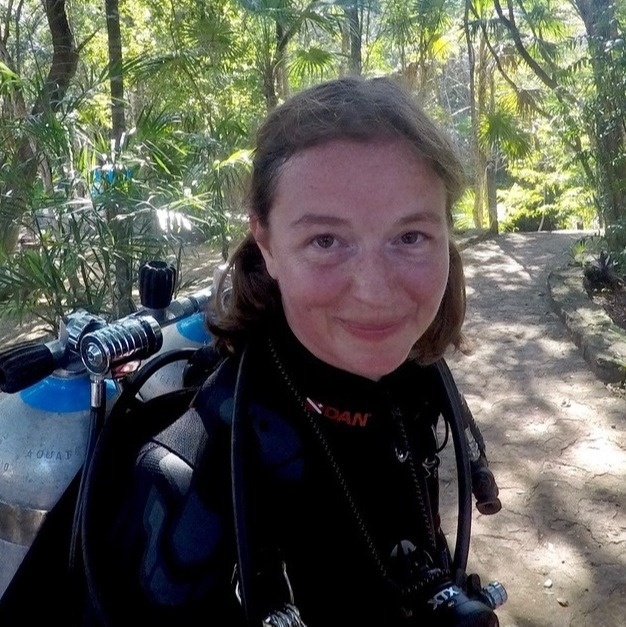
DAN incident reporting – work in progress
Dr Frauke Tillmans......16:00-16:50 Hall 2
This talk is going to introduce you to the DAN Diving Incident Reporting System (DIRS), how it started, where it stands now, and where it is headed. DIRS is a research tool and is meant to provide divers with feedback on incidents and near misses they report voluntarily and give other divers the chance to learn from those shared experiences.
DAN incident reporting - work in progress
DAN has collected diving incidents and fatalities for almost four decades. A number of the voluntarily reported incidents have been published in the Annual Diving Report or were featured on the DAN.org website or in Alert Diver Magazine. Since 2012, the DAN Diving Incident Reporting System (DIRS) is an online application and has collected hundreds of incidents and experience reports that divers were kind enough to share. The incidents cover everything from pre-planning of a dive, to equipment failures at the surface or in the water, to adverse situations during a dive that triggered an undesirable outcome. Divers share these experiences about these events, including mistakes that were made, injuries that occurred and possible contributing factors with DAN in the hope that others can learn from their stories. DIRS has recently undergone some changes and has incorporated more detailed questions pertaining to Human Factors, which will be highlighted in this talk. You will learn how the DAN team reviews the submitted incidents and what you can expect from us when sharing your experiences with us.
Bio:
Frauke Tillmans is the Research Director at Divers Alert Network. With a PhD in human biology and extensive experience in different areas of diving, including recreational, technical, cave, scientific, and public safety, she has brought some new perspectives into the injury monitoring initiatives at DAN.

What can happen legally after an incident?
David G. Concannon......17:00-17:50 Hall 1
What happens after the accident? This presentation details the process and procedures for investigating a scuba fatality or serious injury.
What can happen legally after a diving incident?
Accidents happen, no matter how hard we try to keep divers safe, because people make mistakes. For example, in a review of 1,000 recreational diving mishaps performed in Australasia, 87 percent were found to be caused by human error; while inexperience and insufficient training accounted for 14 percent and eight percent, respectively, of the contributing factors to mishaps. In other words, the vast majority of accidents happen because people make a mistake, with a smaller number caused by people getting in over their heads. For this reason, when a diving accident occurs, an investigation of some type usually follows. It is important for you to understand the process as the investigation moves forward. This presentation describes, in detail, what happens after the accident.
Bio:
David Concannon is an attorney with more than 40 years of experience as a scuba diver and 30 years as a trial lawyer in courtrooms around the United States. Through his law firm, Concannon & Charles, David represents a myriad of clients in the diving industry and he is an expert on the legal issues associated with scuba diving.
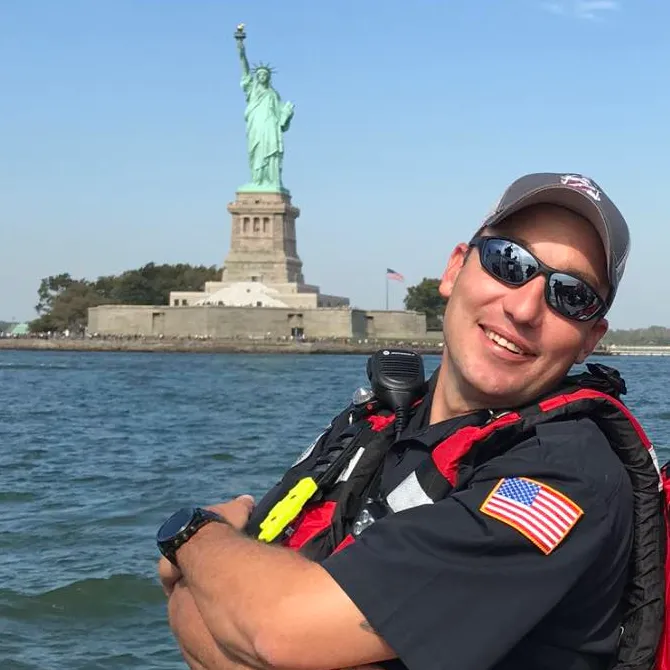
From the Ground Up: The Rebuilding of a PSD Team After an Accident
Tim Andro......17:00-17:50 Hall 2
From the Ground Up covers the preventable events that led to a diver decompression injury, the ensuing regulatory investigation that caused the team to be shut down, and the eventual rebuilding process to get back in good standing.
From the Ground Up: The Rebuilding of a PSD Team After an Accident
From the Ground Up covers the preventable events that led to a diver decompression injury, the ensuing regulatory investigation that caused the team to be shut down, and the eventual rebuilding process to get back in good standing.
Bio:
Tim Andro is the owner and lead SDI/ERDI instructor for Northeast Public Safety Divers, a premiere public safety dive training center for the northeast U.S. He has almost 20 years of recreational and technical dive experience, including Advanced Trimix and Closed-Circuit Rebreather, and has logged over 3,000 dives. He has also been a firefighter for 22 years, 10 of those as a public safety diver, and is the current Dive Coordinator for Mahwah Fire & Rescue Co #1, and the current Vice President of the North Jersey Regional SCUBA Task Force.
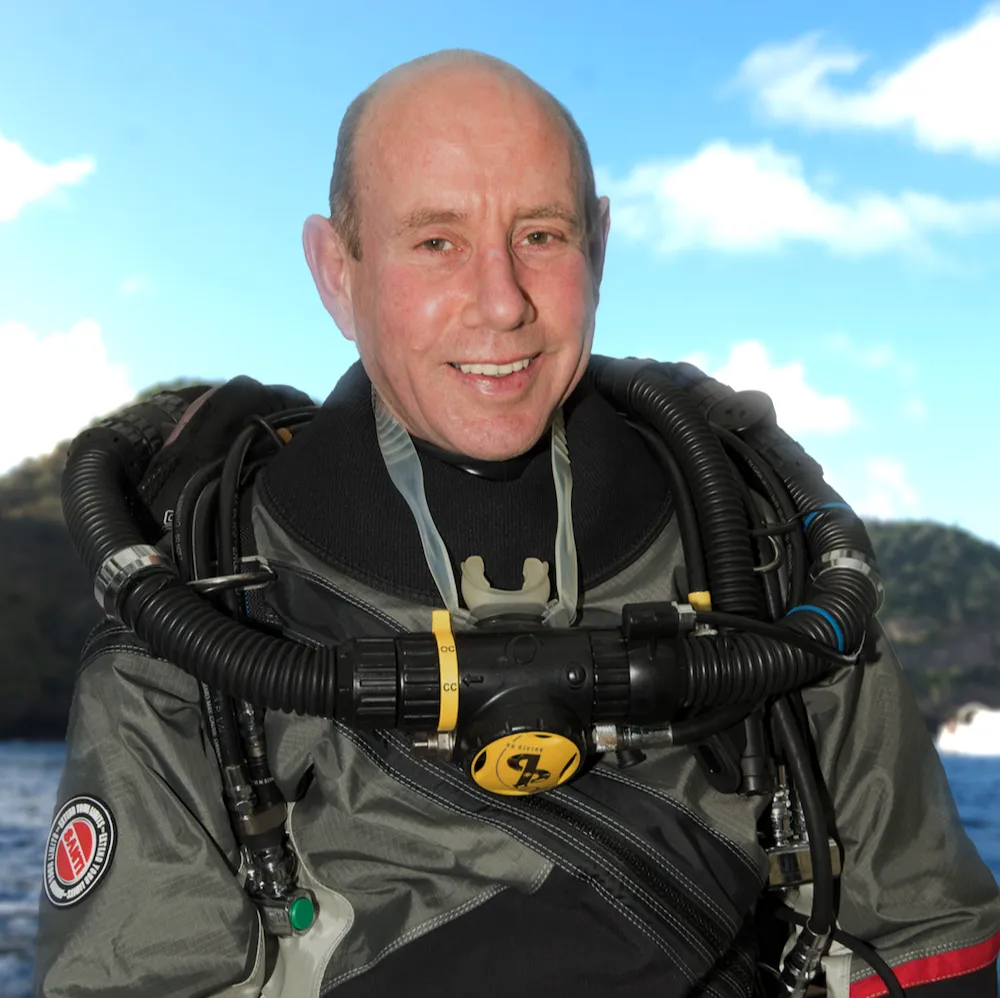
Bringing HF into Healthcare: Challenges and Successes
Dr Simon Mitchell......10:00-10:50 Hall 1
There are many parallels between the complex processes involved in surgery and technical diving. In both fields, there has been a reluctance to acknowledge human fallibility and embrace strategies to reduce error, but the extraordinary success of simple interventions (particularly checklists) in improving outcomes among surgical patients should now remove any doubt in divers' minds that embracing strategies such as checklists will improve their safety too.
Bringing HF into Healthcare: Challenges and Successes
Both technical diving and the intraoperative care of surgical patients are complex processes with much potential for human errors or omissions to result in poor outcomes. Both technical diving and surgery are undertaken by highly trained individuals who place great importance on their expertise and competency, and who are at risk of failing to fully acknowledge their inherent potential for fallibility. Failing to confront fallibility may be encouraged by the fact that things go well the vast majority of the time, potentially feeding complacency, a self-perception of being 'above error', and a reluctance to embrace (perhaps even contempt for) strategies that implicitly acknowledge fallibility and attempt to prevent it (such as checklists and team briefings). The surgical world was forced to confront this issue after the publication of the original WHO Surgical Safety Checklist study and other follow up studies which confirmed the finding that introducing a simple checklist process to the operating room reduced patient deaths and complications. In the decade since, there has been a generational swing toward adopting human factors strategies to reduce error, with further evidence of improved patient outcomes. This extraordinary result should be carefully scrutinized by technical divers who are much less advanced down this path. This presentation will explain the relevant research in healthcare and discuss why it is directly applicable to divers. The principles of adopting processes such as checklists (and related pitfalls) will be discussed culminating in advice that could be translated directly into practice and will almost certainly save lives.
Bio:
Simon is Professor of Anaesthesiology at the University of Auckland, and a very experienced rebreather diver. He was a member of the original WHO Surgical Safety Checklist study group, and since that study has undertaken extensive research aimed at optimising checklists and their use in the operating room environment.

Facing diver panic to open opportunities for wider prevention
Dr Laura Walton......10:00-10:50 Hall 2
Entering a state of panic is always possible, even for well-equipped, experienced divers, but it is not inevitable. Building our awareness of the complex factors that interact to spark an episode of panic underwater opens multiple opportunities to face the problem of diver panic.
Facing diver panic to open opportunities for wider prevention
Panic is a physiological and psychological state that can occur when a person is under stress. It involves extreme levels of emotional arousal (high or low) and associated changes in thinking, information processing, and attention. In this state, a person is not able to think clearly or consciously control their actions. Behaviour is instinctive, and the brain drives processes for immediate survival; leading to actions which can be effective on land, but are potentially fatal underwater. Entering a state of panic is always possible, even for well-equipped, experienced divers, but it is not inevitable.
Bio:
Dr Laura Walton is a Clinical Psychologist, specialising in Diving Psychology; and a Scuba Diving Instructor. Her perspectives on stress, anxiety and panic in diving arise from knowledge of psychological theory, clinical practise and informal observation of diver behaviour.
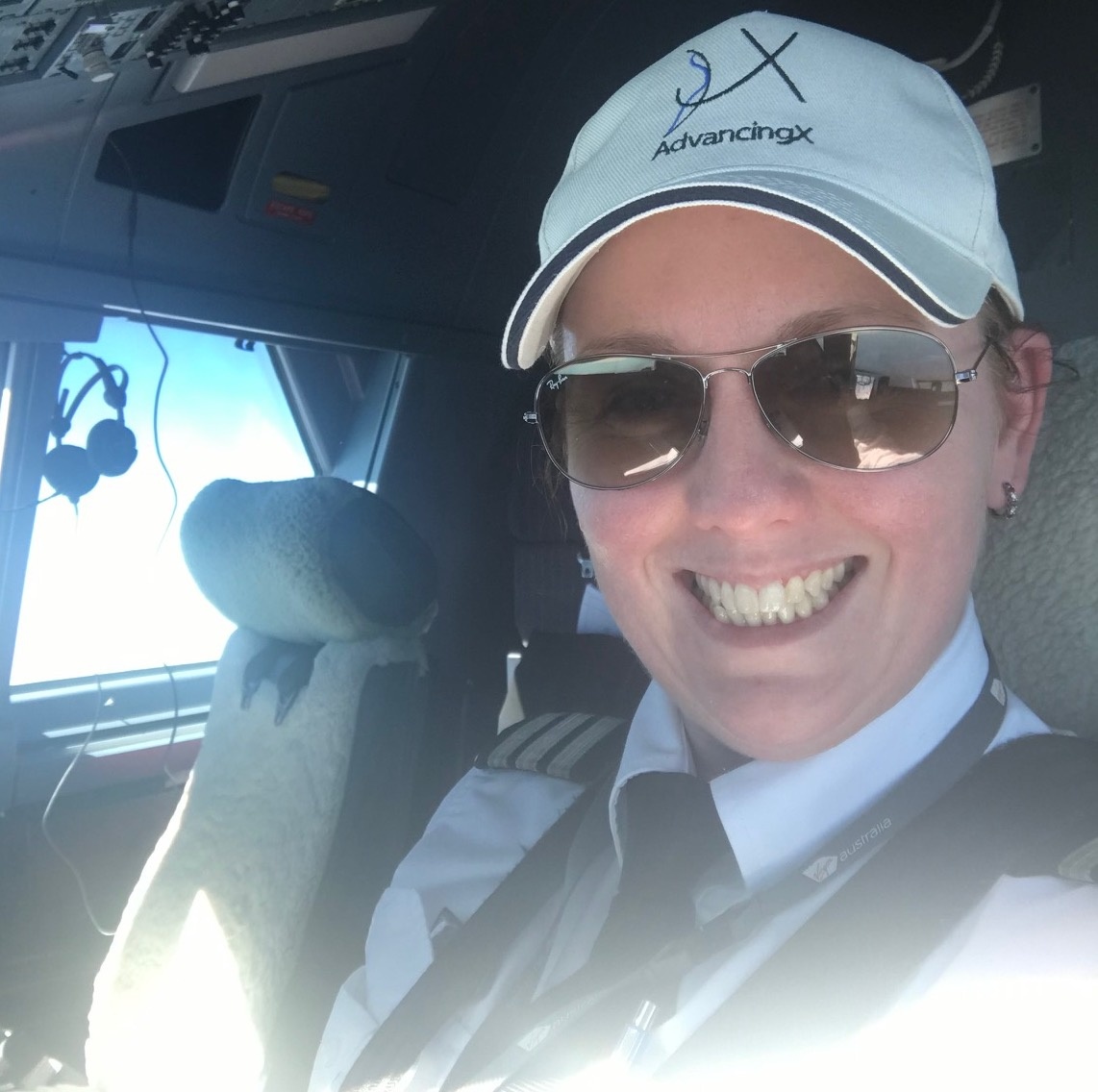
From the Stars to the Sea: How Aviation/Aerospace Human Factors has infiltrated Diving and how diving is improving our ability to go to space
Sally Tidman......11:00-11:50 Hall 1
Wanna know something cool? The early astronauts almost died when attempting spacewalks for the first time. Why is that cool??? Because it was astronauts who had experience in diving who succeeded in spacewalking, diving was a compulsory part of the space program.
From the Stars to the Sea: How Aviation/Aerospace Human Factors has infiltrated Diving and how diving is improving our ability to go to space
Since man took flight in a balloon in 1783 there were agreed rules and behaviours pertaining to those flights. These rules, and subsequent learnings such as ergonomics, fatigue management, stress management, situational awareness etc... seeped into other industries such as Rail, Health and Nuclear.
Bio:
Sally Tindall is a commercial airline pilot who took up diving to pursue her dream of becoming an Astronaut. She had no intention of loving diving!
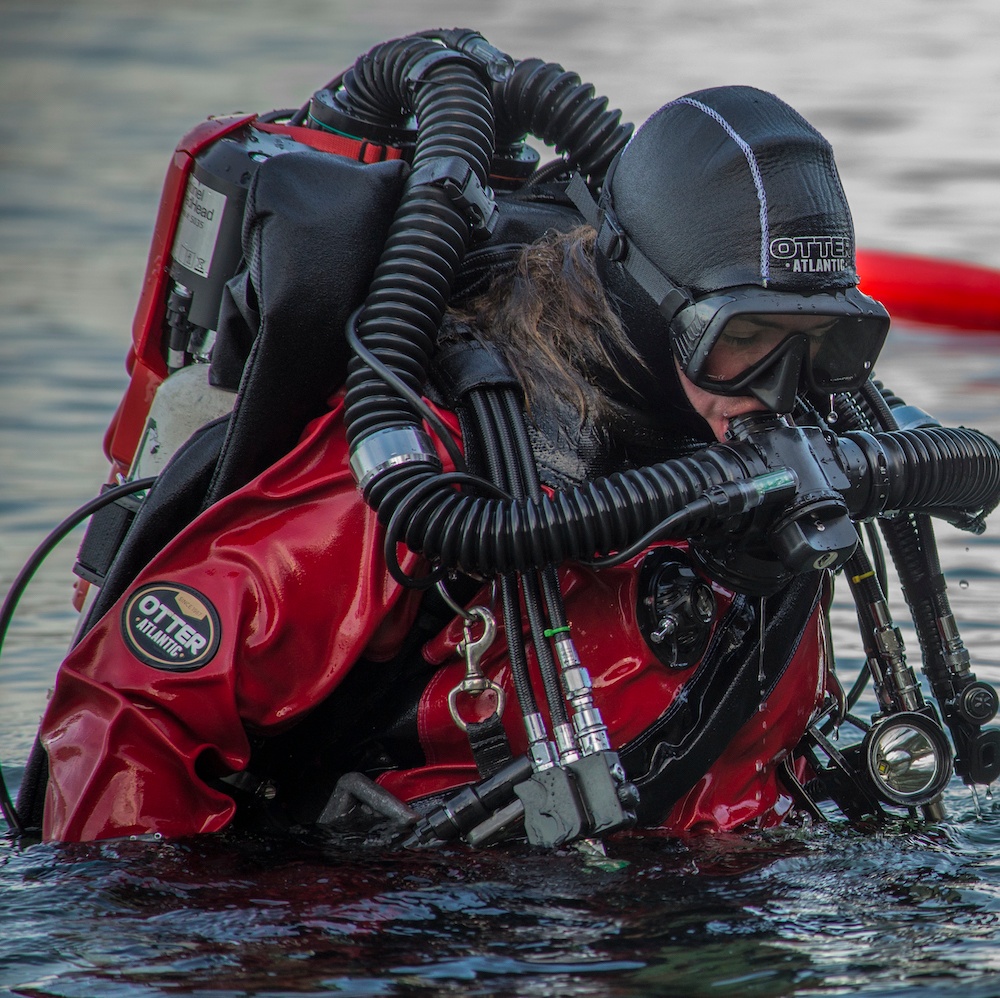
Message Not Delivered – when communication fails us
Beatrice Rivoira......11:00-11:50 Hall 2
Surface and underwater communications play a crucial role in our diving activity. What happens when they fail and why does it happen?
Message Not Delivered – when communication fails us
Being able to transfer information correctly between people is fundamental in our everyday life. Even more, if you are trying to pass them to your teammates, and students, before or during a dive.
Bio:
Beatrice is an Italian vocational diver with a Master’s Degree in Marine Biology and Oceanography. She works around the world as a CCR & OC instructor and participates in diving projects. Delving into HF has been the natural consequence
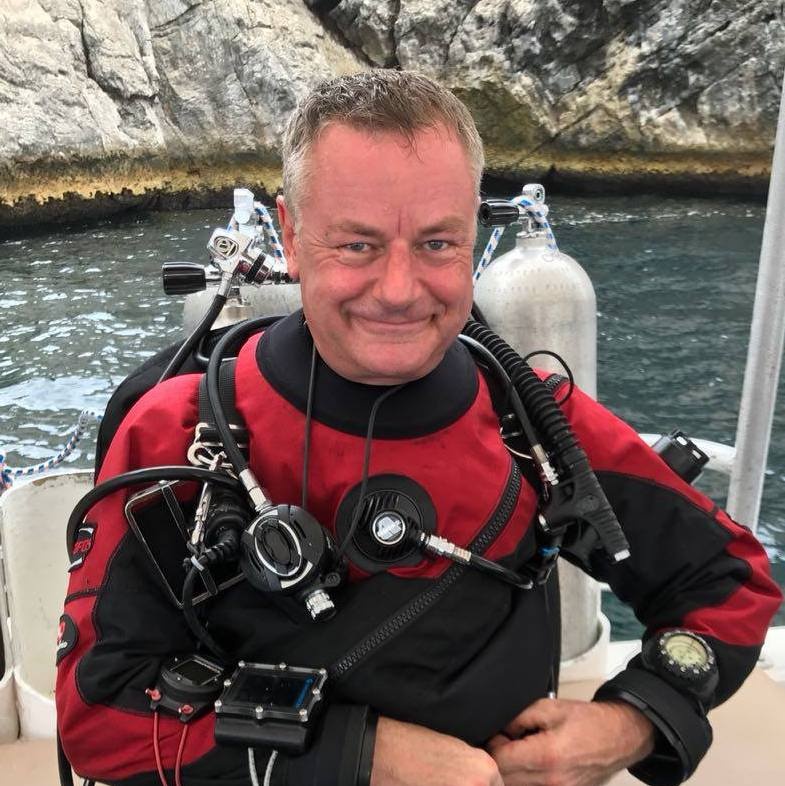
How HF can help manage risks in a busy dive centre
Darryl Owen......12:00-12:50 Hall 1
Busy dive centres are always under pressure to keep to the schedule, make the customers happy and meet their financial goals. Doing all that while managing safety and minimising risks is a daily challenge for dive centre management teams. This presentation talks about how HF can help.
How HF can help manage risks in a busy dive centre
The penalties and consequences for incidents and accidents in a scuba diving operation can be severe. In addition to the associated human anguish, a serious accident can close the business or result in criminal legal proceedings and jail time for both dive professionals and owners. It is a constant balancing act to create a fun day out for customers while managing people's egos, the urge to cut corners to be more efficient and some divers' capacity to try things that exceed their training due to peer pressure, or just because they don't realise the risks they are taking. This presentation looks at how HF can play a structuring role in dive centre management and continuous improvement.
Bio:
Darryl Owen is a UTD Technical Instructor, RAID Instructor Trainer and Examiner and an Instructor for The Human Diver. He lives in the United Arab Emirates and owns dive centres in both the UAE and Oman that specialise in education, exploration, marine science and photography and videography.
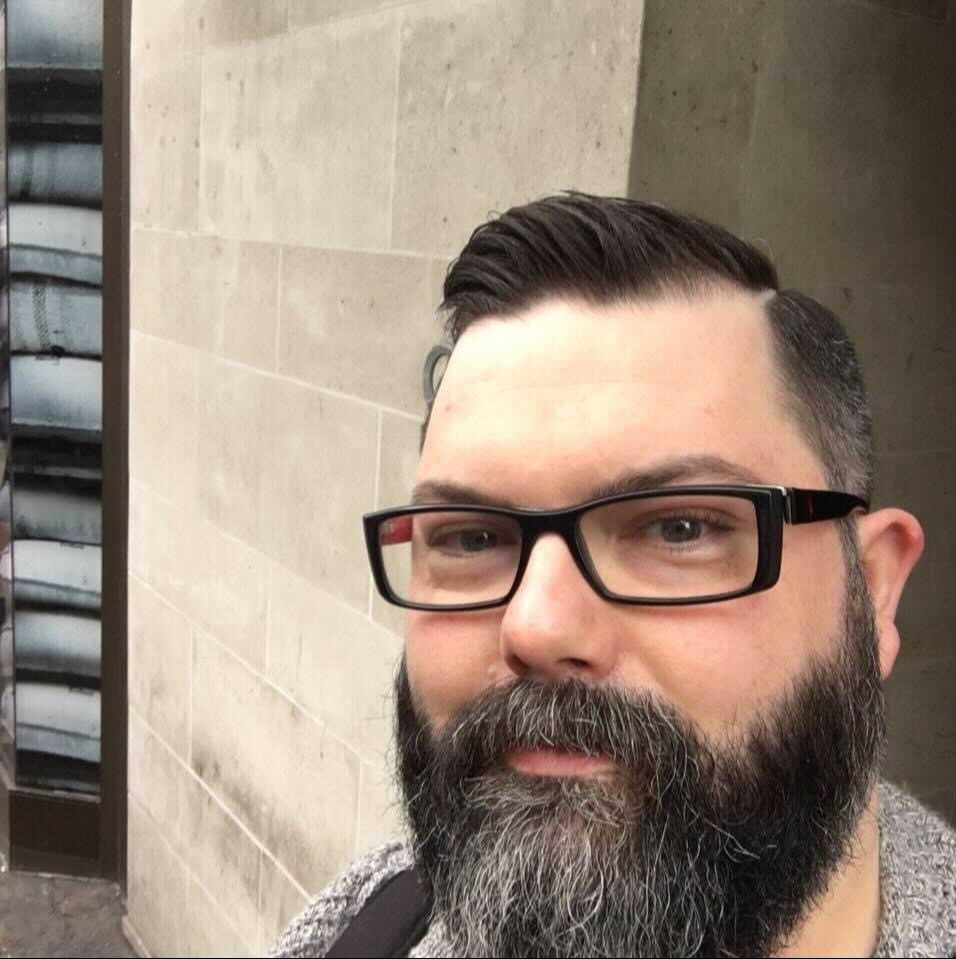
The Application of Human Factors as an Average Diver.
Chris Tibble......12:00-12:50 Hall 2
If you're an average recreational or tech diver, how can you integrate Human Factors into your diving?
The Application of Human Factors as an Average Diver
Chris shares his experiences of diving from his faltering early steps as a recreational diver through to his current qualification as a fully certified stage cave diver, linking these back to his experience with Human Factors. Throughout his 1000+ dives, Chris has been solidly mediocre, spending most of the time diving as the average diver would. He has dived in every team style from insta buddies on holiday through to a dedicated group of friends with whom he dived every weekend. Looking forward, Chris looks into how you can integrate Human Factors thinking into your diving, and how you can encourage others to think differently, even if you're only with them on a boat for an afternoon.
Bio:
Chris is, and always has been an average diver!
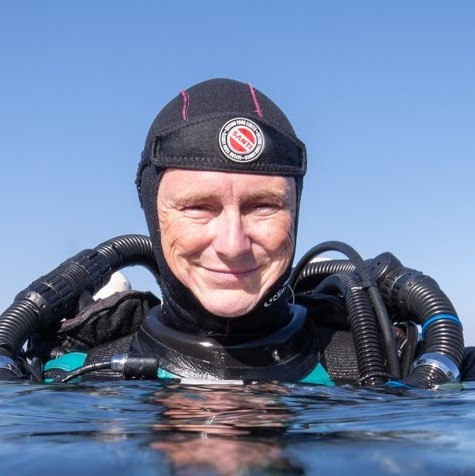
How to assess and develop Situation Awareness in others
Jenny Lord......13:00-13:50 Hall 1
It is vitally important as divers that we are aware of all of the factors influencing us. Things can easily be missed if our attention is focused elsewhere, but how can we tell if our buddy or student is aware of everything they need to be? This presentation will help you to understand why you, your buddy or student sometimes miss what seems obvious and give you the tools to help improve your awareness and those of others.
How to assess and develop Situation Awareness in others
It is vitally important as divers that we are aware of all of the factors influencing us. Things can easily be missed if our attention is focused elsewhere, but how can we tell if our buddy or student is aware of everything they need to be? This presentation will help you to understand why you, your buddy or student sometimes miss what seems obvious and give you the tools to help improve your awareness and those of others.
Bio:
Jenny Lord is a TDI Instructor Trainer, Advanced mixed gas CCR diver and instructor for The Human Diver. She lives and works in Dahab, Egypt as a full-time instructor of diving, photography and Human Factors.
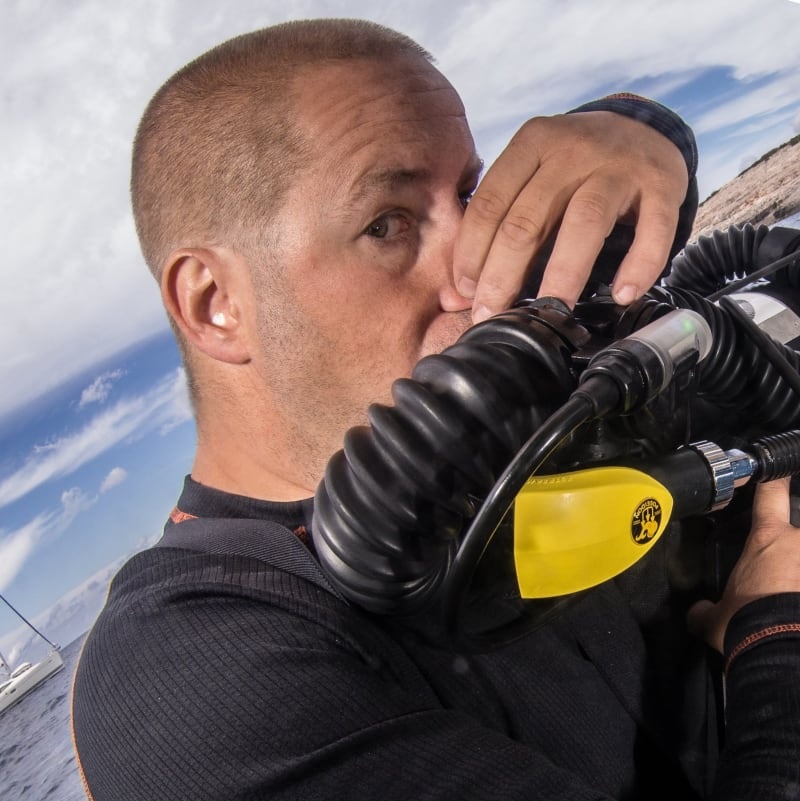
The relationship between national culture and safety culture: Implications for diving safety and organizational culture
Andrzej Górnicki......13:00-13:50 Hall 2
In high-risk industries, it has been recognised that national culture impacts risk perception, acceptance and compliance with rules and regulations. As diving is an international activity, this presentation will take what has been learned elsewhere and applies it to diving
The relationship between national culture and safety culture: Implications for diving safety and organisational culture
In a number of high-risk industries like heavy transportation, oil, gas and aviation, researches were conducted to determine the influence of national culture and its implications for safety culture. This presentation will address potential cross-cultural differences in attitudes, perceptions and beliefs regarding diving safety. I am also interested in presenting how nation history and national culture influences differences in attitudes, perceptions and beliefs regarding risk-taking behaviour, accepting high-risk activities, and rules breaking.
Bio:
I am a diver. I am also a diving instructor. I have been writing articles about diving, teaching and learning diving and diving safety. In 2020, I have engaged in Human Factors Training. Since then I have been writing and translating articles, and sharing HFiD ideas within the Polish diving community.

TBC
TBC......14:00-14:50 Hall 1
TBC
TBC
More details
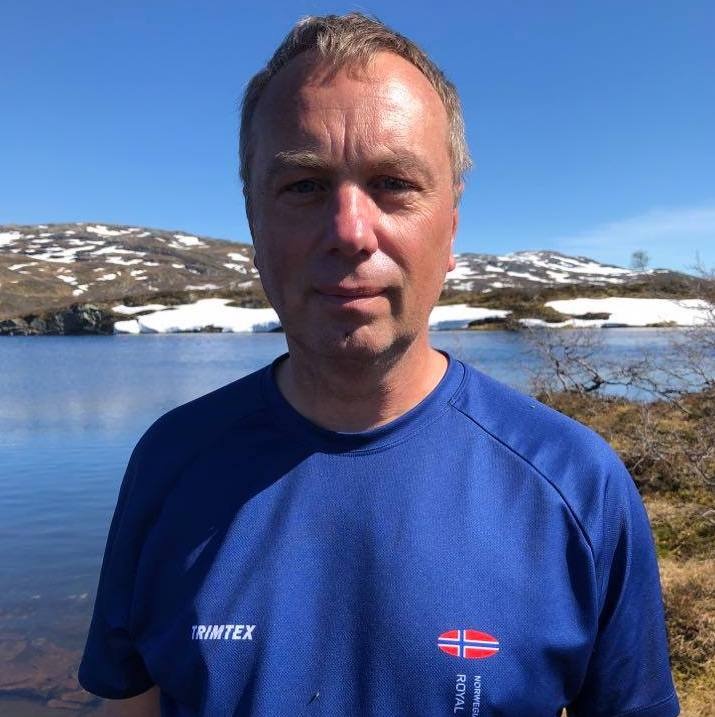
Crew Resource Management in military diving operations
Cdr Geir Gundersen......14:00-14:50 Hall 2
Military divers work in teams where stress, decisions, teamwork, attitudes and positive culture are critical elements in success. This presentation focuses on how to minimize the risk and use CRM at an operational level in military diving operations.
CRM in military diving operations
Military diving operations may vary from short and simple missions to long and complex operations. The military diver has a large toolbox to get the job done. The clearance divers normally dive scuba air, surface supplied diving and different rebreathers including ECCR. Typically, the dive equipment is just a transport method to be able to complete a task. However, the wide range of opportunities also increase the probability to make mistakes and end up with serious incidents. Military divers work in teams where stress, decisions, teamwork, attitudes and positive culture are critical elements in success. This presentation focuses on how to minimize the risk and use CRM at an operational level in military diving operations.
Bio:
Military clearance diver since 1989 and now the head of the diving department at the Norwegian Naval diving Centre. He has undertaken a number of CRM instructor courses and brought CRM into the Norweigan Diving Centre in 2004.
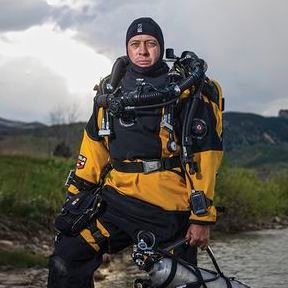
"Just Culture" from the Inside- How Not to be a Good Subject of an Accident Investigation.
Dave Conlin Ph.D......15:00-15:50 Hall 1
This presentation is a personal perspective on being the subject of a government/institutional accident investigation based on first-hand experience.
"Just Culture" from the Inside- How Not to be a Good Subject of an Accident Investigation.
In November of 2012 during a routine training dive to 36m (120 ft.) National Park Service diver Dave Conlin experienced a dual sensor failure on his ccr which lead to a hyperoxic mix in his breathing loop, an O2 seizure at depth, an uncontrolled ascent from depth, almost a week in hospital, hundreds of thousands of dollars in expenses for the National Park Service and an internal investigation spearheaded by law enforcement that lasted almost two years. This presentation looks at the root mechanical, procedural and human factors causes of the accident, but also looks at the experiences of the subsequent investigation by the prime subject of that investigation- Dave Conlin. This presentation will attempt to take a broad perspective on an accident that happened almost a decade ago with the caveat that this is a personal account of events by one participant deeply involved in events.
Bio:
Dave Conlin is the Chief and Director of the US National Park Service's Submerged Resources Center, a small team of underwater archaeologists and Photographers that provide expert services and consulting to US National Parks and Partners. An experienced open, closed and surface-supplied diver with dozens of certifications and thousands of dives, Dave and the team he works with have embraced the study of Human Factors and committed to Just Culture in all operational diving.
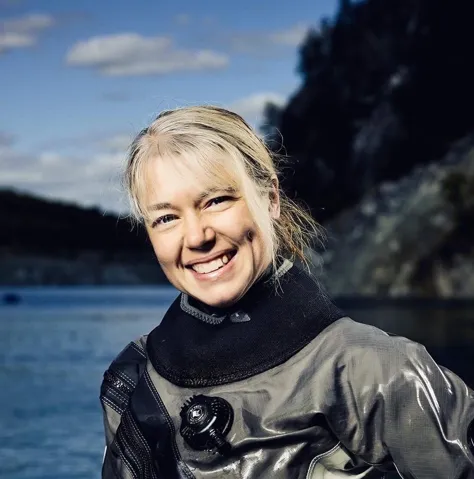
Human Factors for Novice Divers: Why and How?
Helene Pellerin......15:00-15:50 Hall 2
Why human factors are important even for the new diver and how to introduce these concepts without overwhelming them.
Human Factors for Novice Divers: Why and How?
Human factors or non-technical skills are important to increase the safety of diving. Divers from every level can benefit from learning about human factors. To ensure new divers will understand and integrate human factors in their diving, examples used to illustrate the concepts must be practical and adapted to their level of training. This talk will discuss the importance and the benefits of introducing human factors early in the training of divers and will identify ways of presenting these non-technical skills to novice divers.
Bio:
Helene Pellerin is part of the first cohort of instructors for the Human Diver. She is an Anesthesiologist from Quebec City, Canada and she has a high interest in sharing knowledge on human factors and non-technical skills to divers of all levels.
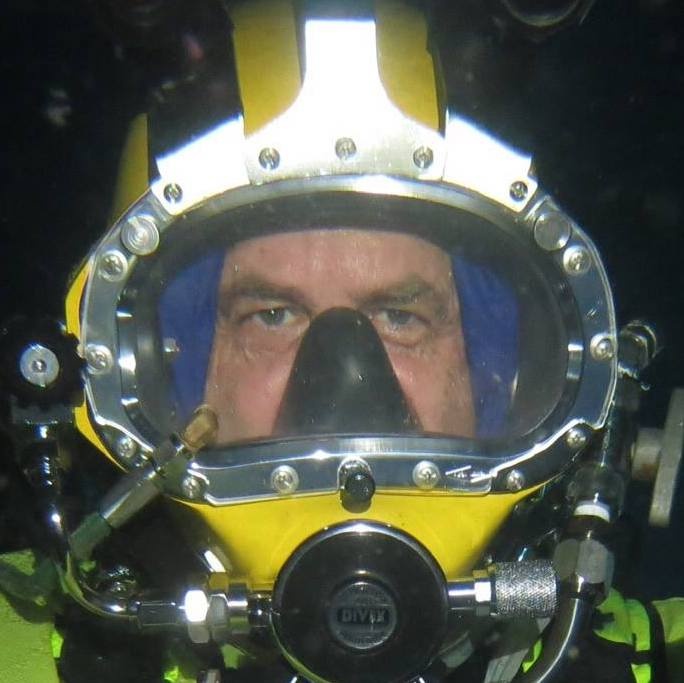
How human factors can influence the outcome in commercial diving
Pierre Le Fevre......16:00-16:50 Hall 1
This presentation is about an accident that happened in the North Sea in 2016 and how by including human factors prior to the beginning of the project a serious undesired event could have been avoided.
How human factors can influence the outcome in commercial diving
This presentation is about an accident that happened in the North Sea in 2016 and how by including human factors prior to the beginning of the project a serious undesired event could have been avoided.
Bio:
Have been an active commercial diver since 1981. Worked from 1981 to 1988 doing inland work and from 1989 onward offshore air diving and saturation diving around the world.
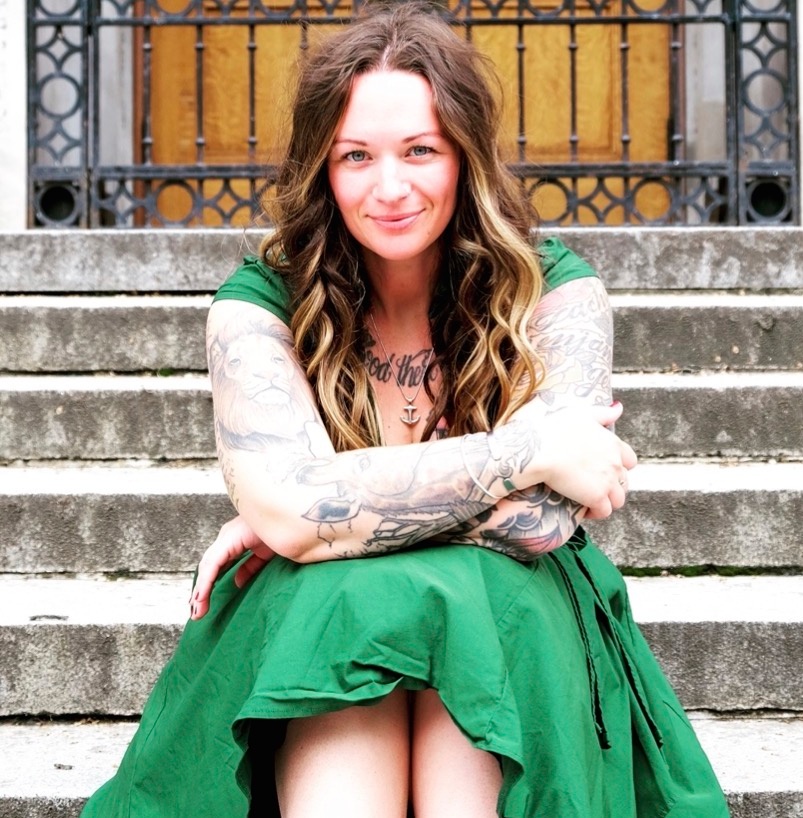
Creating change through story-telling
Ashley Bugge......16:00-16:50 Hall 2
You have the power to inspire! In this presentation, we’ll talk about using personal experience to educate and inspire our diving community, as well as shape and pave the way for learning for future generations of divers.
Creating change through story-telling
This presentation will focus on the power we each possess in shaping our diving community as well as the future generation of divers. Using personal stories of tragedy, triumph, teachable and learning moments, we can build upon this incredible community through sharing personal experiences. From “Uh-oh” to “Oh god, I can’t believe I did that…” we’ve all experienced moments of panic or frustration underwater, but we’ve all survived and lived to tell about it. That sets us apart from some, and lessons are learned through shared experience, so let’s talk about the value of sharing these moments with others. What are some moments you wish you could go back and re-do? What lesson did you learn from that experience? Would somebody else find that information valuable?
Bio:
Ashley Bugge is an award-winning author and human behaviour scholar based out of the United States. As an American military widow, she has dedicated her personal and professional pursuits to opening dialogue in emotionally complex scenarios and has modelled this behaviour in the aftermath of the diving accident that claimed her husband's life in May 2018.
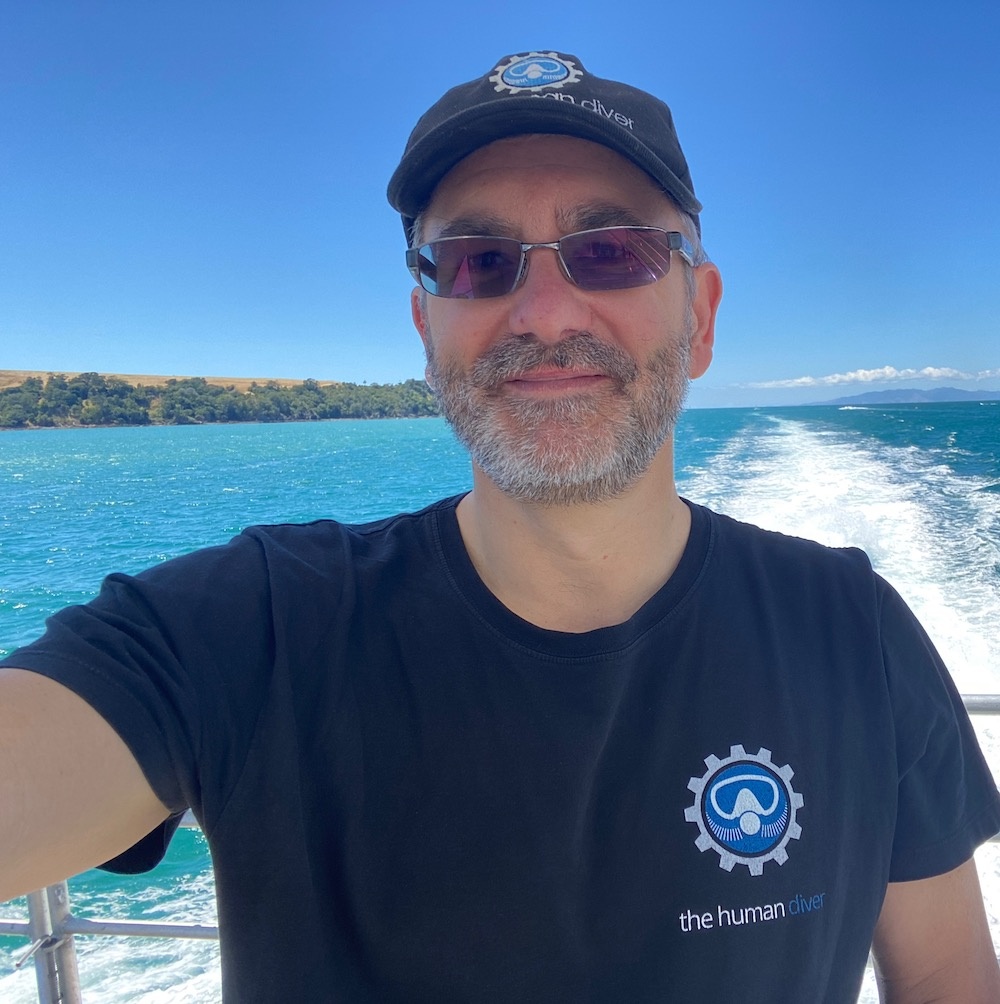
The Onward Voyage
Gareth Lock......17:00-17:50 Hall 1
Looking to the future, how will the diving community, training agencies and organisations taking Human Factors, Non-Technical Skills and a Just Culture forward? What can YOU as divers do to change the future and make diving safer, more enjoyable and allow exploration to continue?
The Onward Voyage
More details
© 2026 The Human Diver

